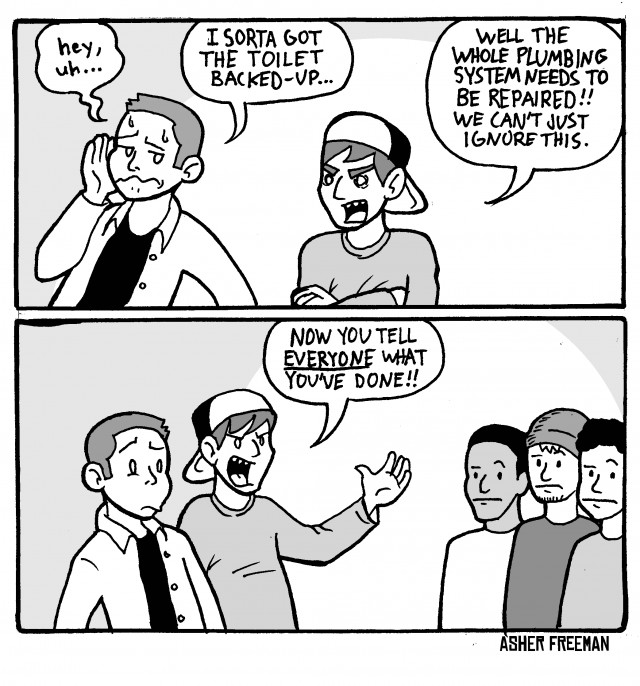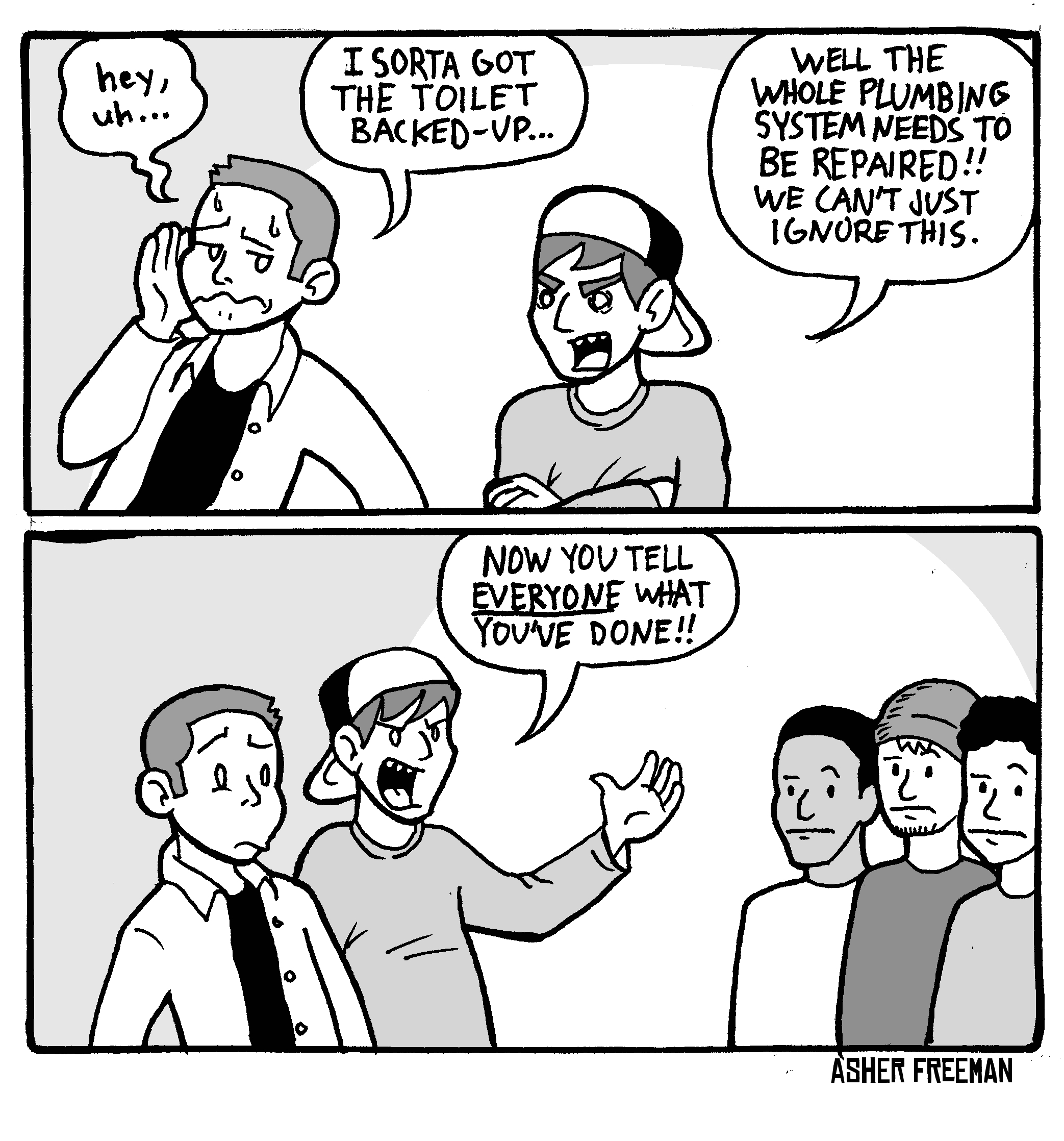 On March 18, the Student Court made a decision on the McCahill, Hardy v. Kinghorn case. The decision, however, raises more questions than answers.
On March 18, the Student Court made a decision on the McCahill, Hardy v. Kinghorn case. The decision, however, raises more questions than answers.
Student senators Gannon McCahill and Chase Hardy accused Internal Vice President Lawren Kinghorn of abusing her power as the internal vice president of student government, alleging that she failed to maintain positional duties and acted with bias within student government.
The court found Kinghorn guilty of violating the Student Body Constitution, Student Senate Bylaws and violating her oath of office.
The court found Kinghorn not guilty of acting with misconduct and failing in her role as president of Student Senate and internal vice president, according to the second section of the court’s opinion.
Throughout the trial, Kinghorn handled herself with grace under pressure. While she was found guilty on some counts, the punishment handed down by the court is questionable and has several conflicts of interest.
After the court found Kinghorn guilty, it ordered that she “compose a written apology addressed to Senator Gannon McCahill and the entire membership of the Student Senate. This apology shall be read aloud by President Kinghorn at the regular Senate meeting to be held on Thursday, March 26th.” This is in addition to the court’s order that Kinghorn come before the court to receive an oral reprimand.
One of the justices, William Stover, dissented on the conclusion, asserting that any reprimands should be written because they would be more permanent. Stover is right.
It is unnecessary for Kinghorn to come before the court in order to understand what she has been found guilty of. It is within reason to ask Kinghorn to write an apology to the plaintiffs in the case.
It is, however, simply humiliating to ask her to read that apology to the plaintiffs in a public setting — in front of the entire Student Senate.
What is the purpose of such a punishment? A written apology is enough. Kinghorn would be acknowledging the guilty verdict and making amends with the people involved.
Also, the court sided with McCahill only in part. The portion of the complaints that most directly had to do with the Senate as a whole was in the second section, in which the court sided with Kinghorn. Why, then, does Kinghorn have to orally apologize to the Senate?
The Kinghorn case revealed several holes within the Student Body Constitution and the Student Senate Bylaws. It seems, however, that this was the main reason the court decided to hear the case at all. It noticed flaws with the bylaws and took the case in an effort to fix them.
The entire conflict with Kinghorn could have been handled internally. The Student Senate has an Operations and Procedures Committee for just this purpose — to “review all legislation involving internal issues,” according to the bylaws.
This would include Kinghorn’s actions and the Student Senate Bylaws. The Senate also has the ability to remove any student government official from office with a three-fourths vote.
The court’s decision expresses on multiple occasions that the plaintiff should have sought action before the Senate.
According to the decision, the Court decided to take the case because the Court found “great flaws” in the procedures that pertain to removal from office in the Constitution.
In short, the issue was this: Article II, Section VI* of the Constitution gives the Senate office-removal power and the process is listed in the Senate bylaws.
The problem, according to the Court, is that this process gives the internal vice president most of the administrative power in removing people from office. Because of this, the Court argues, the internal vice president could protect a person from charges and, to a further extent, themselves.
In addition to issuing Kinghorn’s punishment, the court suggests that a committee be formed to revise the constitution and bylaws — Kinghorn’s case just happened to be an opportunity to do just this.
What does not make sense is that the court recommends the internal vice president — Kinghorn — be on the committee to revise these documents. If she was found guilty of violating the constitution and bylaws, then why did the court recommend putting her on the committee?
Not only that, but two of the court members who presided over the case, the Chief Justice and the Deputy Chief Justice, will also be on the committee.
The court members’ participation in the committee is particularly worrisome because of the role they play in the student government: to interpret the constitution. How can they interpret a constitution they personally helped revise? This is not what separation of powers within a government is about.
It seems unfair that what turned out to be a relatively minor case of one person suing the other ended up making Kinghorn the poster child for constitutional revision. Beyond this, Kinghorn was handed a ridiculous punishment that shouldn’t be carried out.
While some might argue that the case is merely setting precedent, it is troublesome to think that any future cases will be handled in the same manner as Kinghorn’s case was — full of uncertainty and conflict of interest.
Reubin Turner, who reported on part of this story, recused himself from the editorial board discussion pertaining to this topic.
_____
Correction (1:24 a.m. March 26, 2015): The editorial incorrectly stated that Article II, Section IV gives the Senate office-removal power and the process is listed in the Senate bylaws, when it is actually Article II, Section VI.






